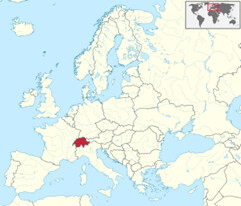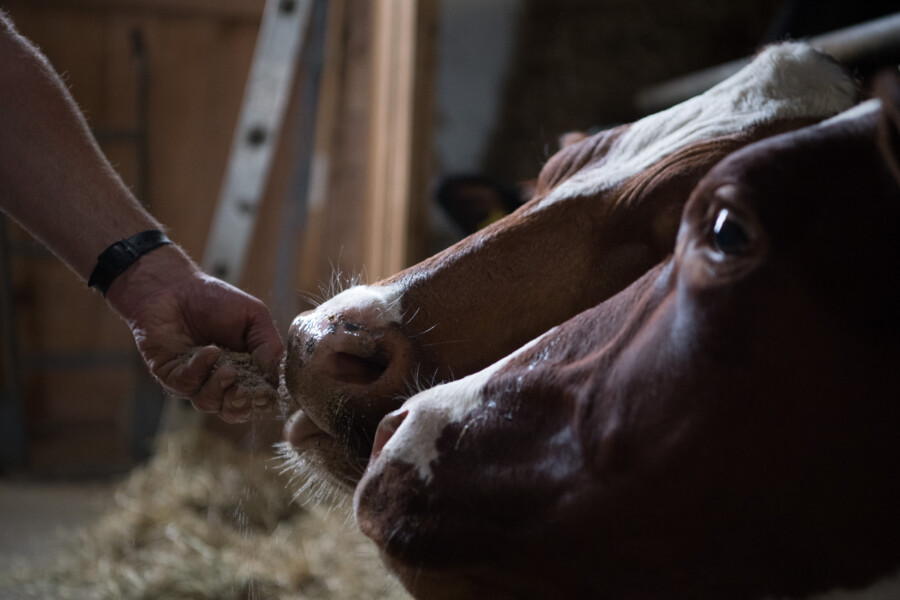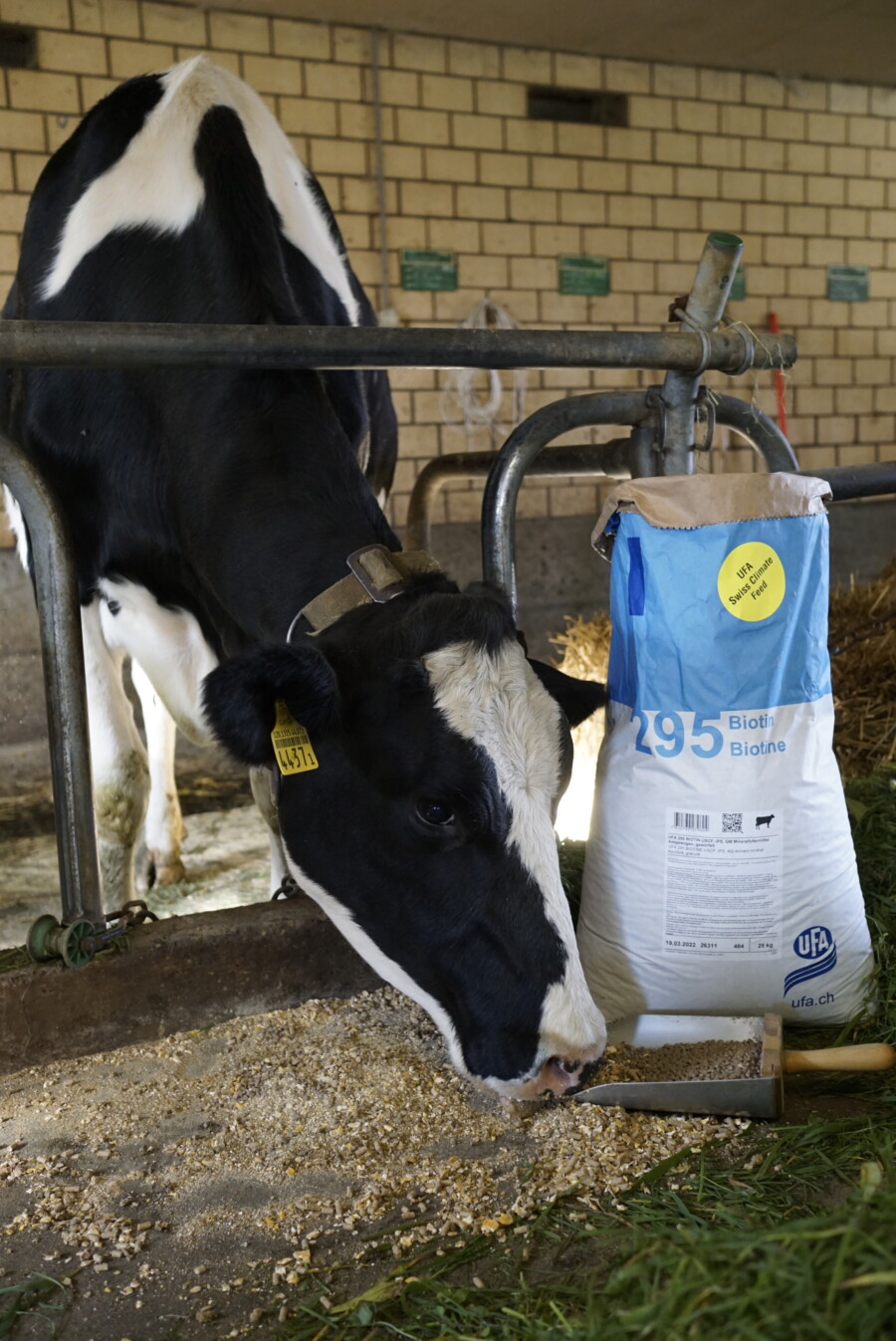The climate protection project UFA Swiss Climate Feed reduces methane emissions from milk production in Swiss agriculture and thus Switzerland's emissions. The project activity enables theproduction and distribution of enriched feed that improves the digestion of dairy cows.
Project Standard: ISO 14064
Project Description
The UFA Swiss Climate Feed project centres around the production of a mineral feed consisting of natural plant extracts, marketed under the name Agolin® Ruminant. Studies have shown that the feed reduces methane emissions from dairy cows by improving their digestion. The product was awarded the special prize for commercial innovations in 2021 at the leading Swiss livestock fair, Suisse Tier.
Agriculture is responsible for some 14 percent of greenhouse gas emissions in Switzerland, within which methane has a 28-fold larger greenhouse gas effect than CO2. The ultimate aim of this climate protection project is to reduce the methane output of dairy cows by nine percent.
The additional costs of the plant extracts and their processing, as well as the administration costs, are covered by the sale of the certificates. This allows the enriched feed to be sold without any additional cost to agricultural businesses.
Moreover, the mineral supplementation in the feed increases its efficiency, reducing a farm’s feed consumption in the long term, thus lessening the environmental impact of milk production.
Social and Economic Benefits
- The mineral feed lowers methane emissions at the same time as increasing efficiency. The cows produce more milk on the same amount of feed. Field testing has confirmed that the feed has high levels of acceptance among cows.
- The project is also looking to the future: If the concept is well received, the range will be expanded to enrich other mineral feeds with the natural plant blend. Moreover, the successful implementation of the project will open the door to further ecological innovations in Swiss agriculture.
Environmental Aspects
- By using this climate-friendly feed, Swiss farmers are able to play an active part in climate protection.
- Farmers can feed the mineral feed to their livestock without any extra workload or cost implications, with no price premium for the natural plant extracts or their processing.
- The mineral feed will enable farms to meet the growing demand of Swiss consumers for more sustainable milk production without passing on any additional production costs via the food prices.


